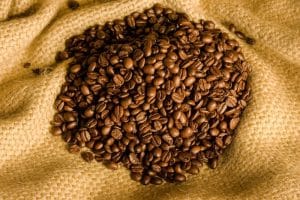
You may be asking yourself, “Who invented the coffee maker?” Well, the answer to that question is Hanson Goodrich. The inventors of coffee brewers were not all men. A few of them were women, but they all contributed to making coffee a popular beverage. However, one woman has been credited with introducing the coffee brewing process. Read on to find out who invented the coffee maker and when.
Hanson Goodrich
During the 19th century, a farmer in Illinois, Hanson Goodrich, patented the coffee maker. His system of percolating coffee grounds used a clever stem adjuster to brew coffee. The coffee was then ready to drink. Goodrich’s invention was popularized in the US and other parts of the world. Today, more people than ever can enjoy a fresh cup of coffee. Here are some facts about the coffee maker.
In 1889, an Illinois farmer named Hanson Goodrich patented a coffee maker that would produce a drink free of sediment and other impurities. Hanson Goodrich’s invention would become a household appliance for the rest of us. Almost everyone owns an electric coffee maker, but there are also other ways to brew coffee at home. Some people prefer the French press, while others prefer actual percolated coffee.
 The first coffee percolator was patented in 1865 by American JAMES NASON. Hanson Goodrich improved this patent and patented it as a stovetop percolator. Angelo Moriondo patented the first espresso machine, but his invention never found widespread popularity. In 1901, Luigi Bezzera patented improvements to Moriondo’s design. In 1905, DESIDERIO PAVONI purchased his patents and began selling espresso machines at the Milan Fair.
The first coffee percolator was patented in 1865 by American JAMES NASON. Hanson Goodrich improved this patent and patented it as a stovetop percolator. Angelo Moriondo patented the first espresso machine, but his invention never found widespread popularity. In 1901, Luigi Bezzera patented improvements to Moriondo’s design. In 1905, DESIDERIO PAVONI purchased his patents and began selling espresso machines at the Milan Fair.
Before the invention of the coffee maker, Hanson Goodrich had settled in Southern Illinois and married Sallie Ann Edwards. He owned a men’s clothing store in Shawneetown, Illinois. He also owned a trading boat and brought goods to Osceola, Arkansas from Cincinnati, Ohio. During this time, Goodrich also brought the first gasoline down the Mississippi River. Goodrich died in 1908 and is buried in the IOOF cemetery in McLeansboro, IL.
Before the invention of the coffee maker, people had to make coffee using a stovetop percolator. Coffee as a drink became popular in Europe after the Boston Tea Party. Many people now choose to drink coffee instead of tea as a patriotic duty. Hanson Goodrich improved on Nason’s coffee percolator in 1869. In addition, Italian engineers Luigi Bezzera and Angelo Moriondo designed the first industrial espresso machine in 1884.
Coffee percolators are the oldest type of coffee maker. They are similar to Moka pots but are more common today. Hanson Goodrich patented the first modern percolator in 1889. The coffee produced in this method would be purer than coffee made by decoction. Goodrich’s patent application stated that coffee percolated by Goodrich would be free of impurities. It is believed that Goodrich’s invention changed the world of coffee brewing.
Bentz also invented the first drip, a coffee maker. The first version of the drip coffee maker relied on manual force. This system was more efficient and yielded a perfect espresso. This coffee machine is still a popular choice today. If you’re a coffee-lover, you must try the coffee maker! There’s nothing like a fresh cup of coffee every morning! Just be sure to have the ingredients on hand.
The coffee maker was first marketed in the 1880s. In the early 19th century, Loeff patented the first vacuum coffee maker in Berlin, Germany. The device had a mercury float switch mounted in the center top piece, which turned off the heat when the water level was too low. Today, it’s known as a coffee maker. And while some people claim the invention of the vacuum coffee maker, the original percolator was patented in 1889.
Before the coffee machine, the drinker had to grind and brew coffee beans manually. His coffeemaking methods were similar to cowboy coffee: grinding and boiling roasted beans, leaving behind the grounds. But after the 19th century, a few inventors began building coffee machines, and they were soon able to serve a hot beverage without worrying about the mess. The invention of the coffee machine is an example of the power of story,




